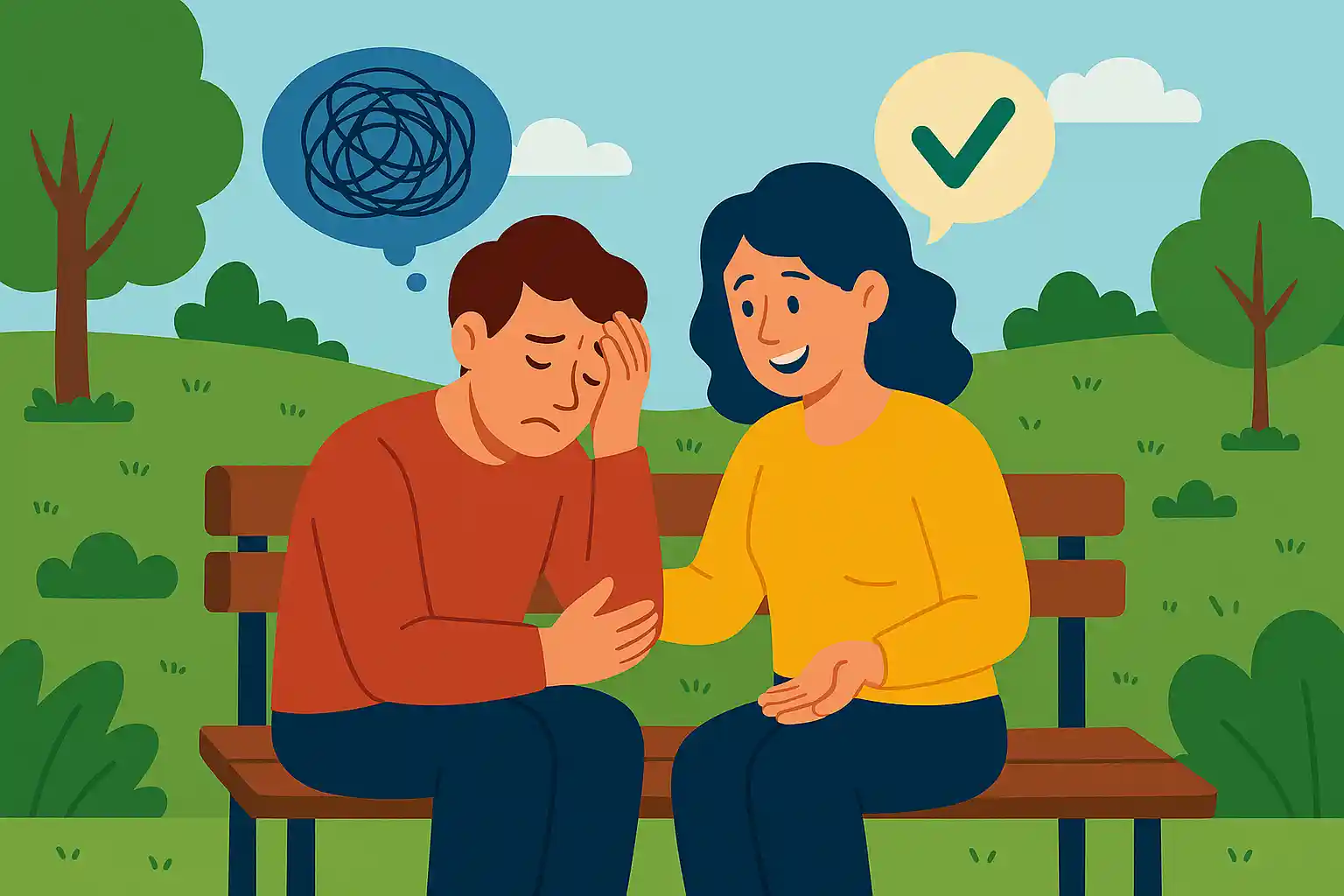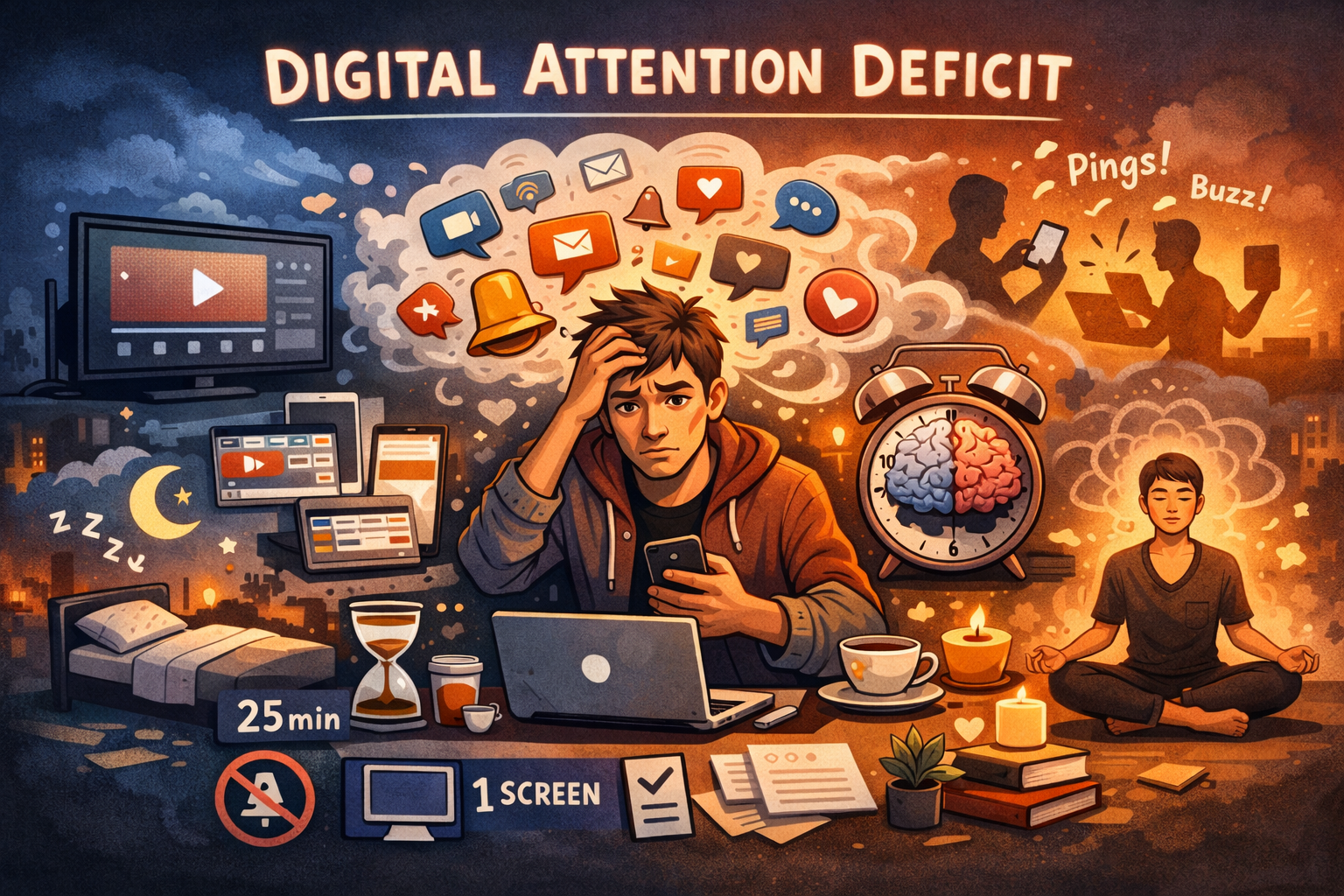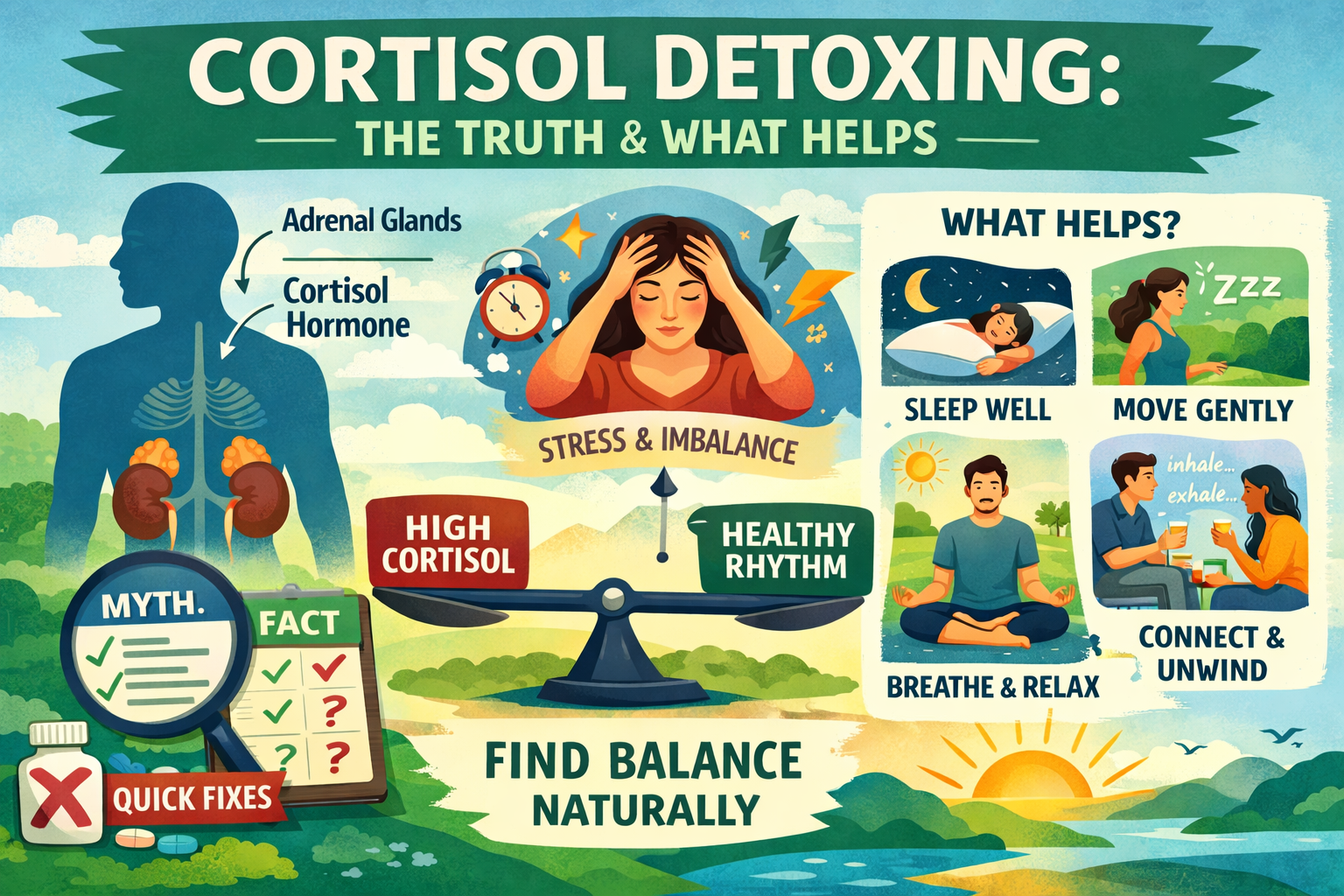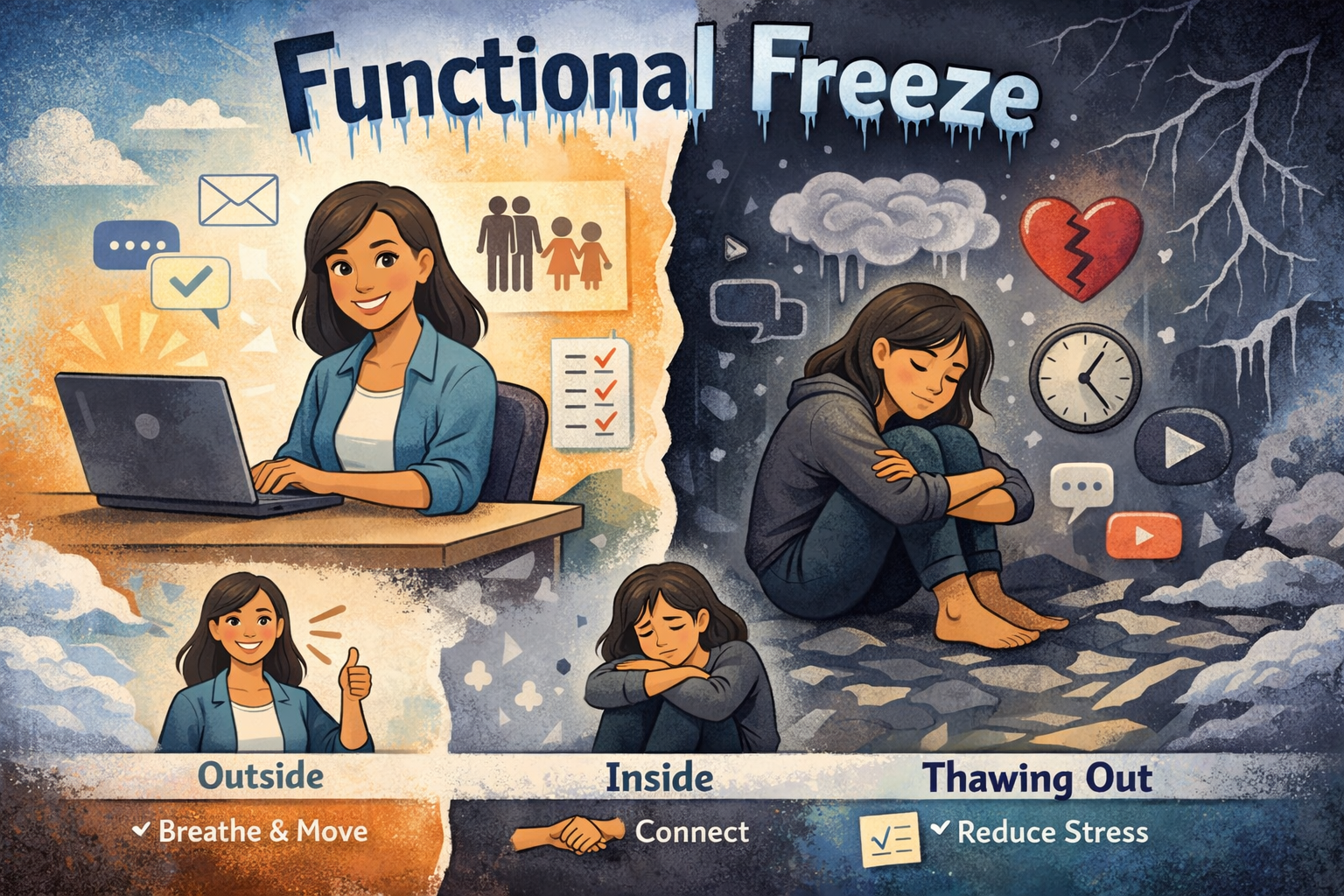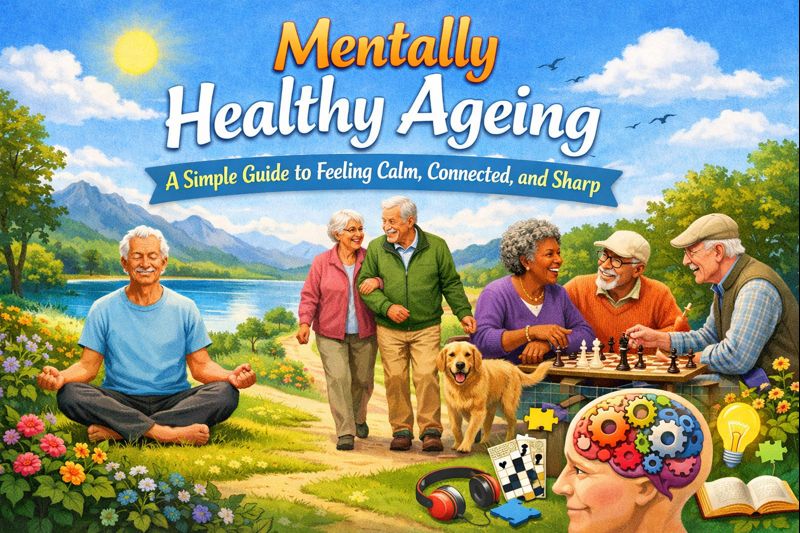Understanding Obsessive Compulsive Disorder (OCD)
First of all, you must understand this mental illness if you are looking to help loved one with OCD. OCD is a mental health condition that affects large number of people worldwide. It causes unwanted and repetitive thoughts that keep coming back. These thoughts make people feel very anxious. To feel better, they do the same actions over and over again. Someone might wash their hands twenty times because they fear germs. Or they might check the door is locked many times before leaving home. These habits take up a lot of time. They make daily life hard.
In India, OCD is quite common. Studies show that about 1-2 out of every 100 people in India have OCD. This means millions of Indians struggle with managing ocd. A study by Reddy and his team found this out in 2017. Sadly, most people with OCD in India do not get help. A big survey found that only about 10-12 out of 100 people with OCD get any treatment. Many people feel ashamed to ask for help. Others do not know where to go for treatment.
The good news is that OCD can be treated. Therapy works well for many people with OCD. A study by Narayanaswamy in 2019 showed this aspect. The therapy teaches people to face their fears step by step. It helps them stop their repeated actions. In India, involving family in treatment helps a lot. Research conducted a prominent mental health centre in Bangalore proved this. When families understand OCD, they can support their loved ones better. With the right help, many people with OCD can feel much better.
Let’s know the basics of OCD
Always trying to be extremely clean and ordered is not the only aspect of OCD. People with this mental disorder have unwanted and obsessive thoughts that cause them to repeatedly do some specific behaviours. The International OCD Foundation estimates that 1 in 100 children and 1 in 40 adults suffer with OCD.
According to renowned novelist John Green, who himself suffers from OCD, "Mental illness is not a choice, but recovery is." Although we cannot make OCD go away, we can support our loved ones in their struggle to recover.
How to help someone with OCD
1. Know more about OCD
Your ability to help other needy people will surely improve with your knowledge and understanding of OCD. Appreciating the insights what another person is going through gets easy as you know better. It would be much like learning a new language. As you learn more, the language gets easier to understand.
2. Listen Attentively and Non-Judgmentally
Simply being there to listen can sometimes be of a great help. Avoid giving advice and suggest remedies. Simply listen to that person attentively. Perhaps what the person needs someone to share the feelings. Avoid passing any judgment over the repetitive behaviour. You need to appreciate their feelings and actions. Often people advice “Just relax and stop thinking about it.” You should understand that those people are compelled to do certain act, though they may never want it.
Research Based OCD Tips
According to a 2023 study published in the Journal of Anxiety Disorders, family support can increase the success rate of OCD therapy by as much as 60%. Here are a few tried-and-tested methods to assist:
1. Encourage Seeking Professional Help
Seeing a mental health professional for OCD is crucial, much like when we visit a doctor for a broken limb. Therapy and occasionally medication are part of the treatment. When symptoms become chronic, they will never go away effortlessly. One must seek medical intervention in such scenarios. Many a times, holistic therapies work well.
2. Participate in Support Groups
OCD support groups for sufferers and their families are available in many places. Because you meet others who are experiencing similar situations, these groups can really be beneficial.
3. Establish a Calm Ambience
- Create a calm environment in your house. Reduce stress by establishing consistent habits
- Maintaining organization; speaking calmly; and taking breaks when necessary
Taking Care of Yourself
Keep in mind that you also need to look after yourself! According to flight attendants, "Put on your own oxygen mask before helping others." Take pauses, engage in enjoyable activities, and discuss your feelings with others.
Learn: How to Manage ocd Thoughts?
Little Actions Bring About Big Changes
Chris Paul, a well-known basketball player with obsessive-compulsive disorder, famously stated, "You have to learn to live with what you have." This implies that rather than anticipating flawless outcomes immediately, we should concentrate on making minor adjustments.
Concluding remarks
Being a cheerleader for someone with OCD means supporting, encouraging, and acknowledging their accomplishments, no matter how minor. People with OCD can lead successful, happy lives if they are given the proper support, understanding, and patience.
Even on difficult days, keep in mind that your love and support make a big difference. Never give up hope, remain patient, and never stop learning. One day at a time, you and your loved one can deal with OCD.
Looking to Help a Loved One with OCD?
At The Mind Therapy, we offer compassionate and expert-led OCD treatment in Delhi, designed to support both individuals and their families.
- Therapy for Mental Health Problems
- Online Therapy Counseling
- Holistic Healing Approaches for OCD, Anxiety & More
Let’s heal together. One step at a time.
Are you looking for inner peace, deep relaxation or holistic solutions for mental health? Visit http://themindtherapy.in - your space for online counselling/therapy, free mental health tests, meditation, sound therapy etc.
Mind Therapy is India's trusted platform for mental health, mindfulness, and holistic healing. Explore expert-led programs, guided meditation, sound therapy and counselling at http://themindtherapy.in


